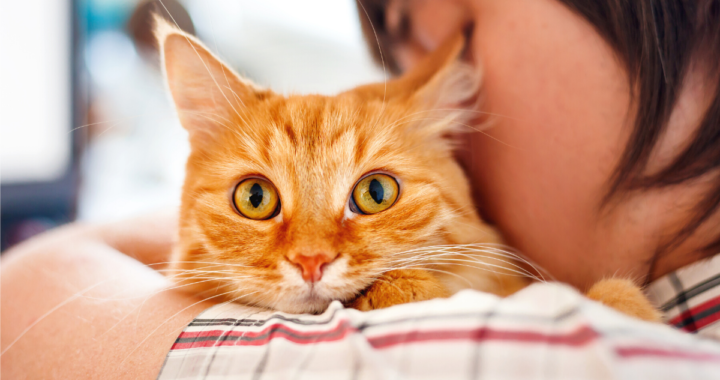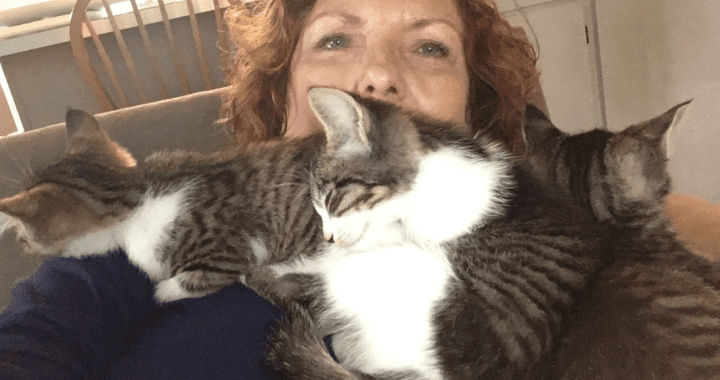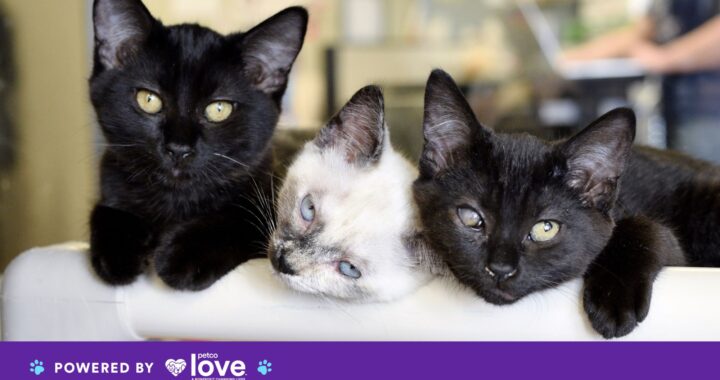As we continue adjusting to life during the COVID-19 pandemic, it’s important to make sure you are prepared in case you (or someone in your household) gets ill, specifically when it comes to caring for the animal members of your family.
The biggest way to be prepared is to have an emergency plan and make sure your pet is a part of it. These plans should encompass situations if you’re sick and can still care for your animal, and if you are unable to continue caring for your animal. Here are some recommendations from experts in the animal welfare field:
- Stock up on essential supplies for your pet, including food and medications. It is recommended that you have two weeks’ worth of supplies in case you need to self-quarantine and cannot leave your home or online suppliers are out of the product you need.
- Make a plan with family, friends, & neighbors about what to do in case you become unable to care for your pet (for more information on those plans, see below).
- If you become sick, many organizations, including the CDC, WHO, AVMA, OIE, and WSAVA, recommend you self-quarantine and keep your animals with you in your home. If possible, have another member of your household take over primary care for pets in the home. If there are not other household members, limit close contact with pets, including washing your hands regularly and wearing a facemask when directly caring for the animals.
- In cases where either you or someone you know is caring for an animal that may have been exposed to COVID-19, both the ASPCA and the AVMA have some guidelines to follow in case the virus is on the pet.
As we write this on April 6, there is no evidence of companion animals spreading COVID-19. There are a few cases of animals who became sick in a COVID-19 household, however it is unclear whether those animals were sick because of the virus or another reason entirely.
(Update on 4/28/2020: a small number of dogs and cats have tested positive for COVID-19, although only a few of them have shown symptoms. See the CDC’s website for more information.)
It was also discovered that a tiger at the Bronx Zoo has tested positive for the virus. For more details on that evolving situation, see this video, presented by The Association for Animal Welfare Advancement.
Recommendations from the organizations listed above say that when an animal has been in contact with someone known or suspected to have COVID-19, the greatest risk comes not from the animals, but from person-to-person contact. These pets should be treated in the same manner as other human household members. They should be self-quaratined in the house and have limited interaction with the person suffering from illness (as mentioned in the above bullet points). Additionally, there is some evidence that COVID-19 can’t live long on the fur of animals, so experts are not as worried in regards to animals being a vessel for transmission.
As this situation evolves, stay up-to-date on animals and COVID-19 with more information on the AVMA and the CDC’s websites.
In the event that you become unable to care for your pet, here are some recommendations for creating a plan to make sure your pet receives proper care in your absence:
Appoint a secondary pet guardian
- During the SAFe Rescue adoption process, we ask that our adopters designate an additional guardian that can care for the pet, in case an adopter is unable to continue caring for their animal. If you do not have a secondary guardian currently appointed, we recommend reaching out to family, friends, or nearby neighbors.
Keep emergency contact and/or guardians informed
- If your emergency contact and secondary guardian are different people, make sure they are aware of one another and have the appropriate contact information to connect with each other in case you are unable to facilitate that communication during an emergency.
- Create a plan with them on what to do if you become sick and your animal needs to be temporarily relocated.
- Provide them with copies of your pet’s veterinary information, in case a visit to the vet becomes necessary.
- Update them on any special care you are providing your pet, including medications and specific foods.
- If your emergency contact/guardian is unable to provide housing for your animal, make a list of local pet boarding places and/or other temporary locations your pet can stay during your illness. (Some companies, like RedRover, are offering emergency boarding grants to help animals and their owners who are affected by COVID-19. Check out their program here.)
Update your pet’s microchip
- In case your pet becomes lost or escapes, make sure your address and phone number are updated on your pet’s microchip. This will help lead to a timely return of your animal if they are found and taken to a nearby shelter and/or veterinary center.
- If you don’t have a registry that you currently use for your pet’s microchip, you can update your microchip information here.
- Similarly, you’ll want to make sure your pet’s guardian information is also listed on the microchip.
Additionally, as you prepare for your own plan, don’t forget about your neighbors, family, and friends that have animals. Reach out to them and ask if they have a plan in place. If you’re able to do so, offer to be their emergency contact and/or secondary guardian.
If you have several people in your life with pets, you may want to form a support group. That way, everyone is in agreement to offer assistance in the case of one member needing additional supplies or temporary pet relocation.
These are challenging times, but together we can help our families and our communities get through this crisis!




